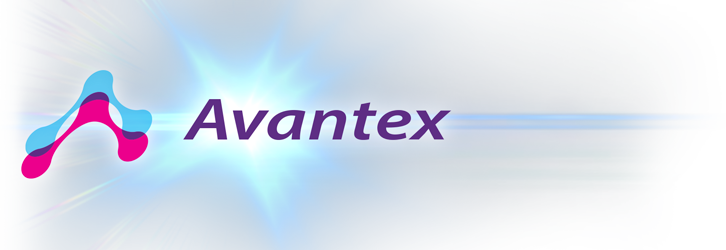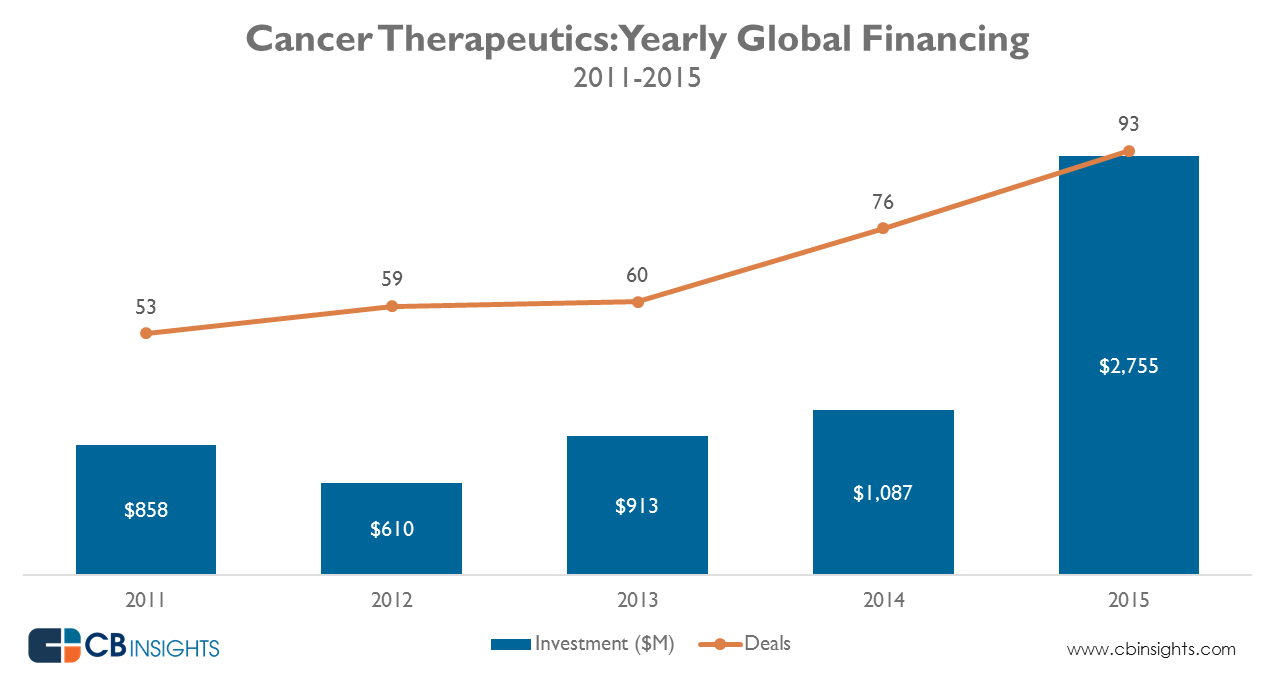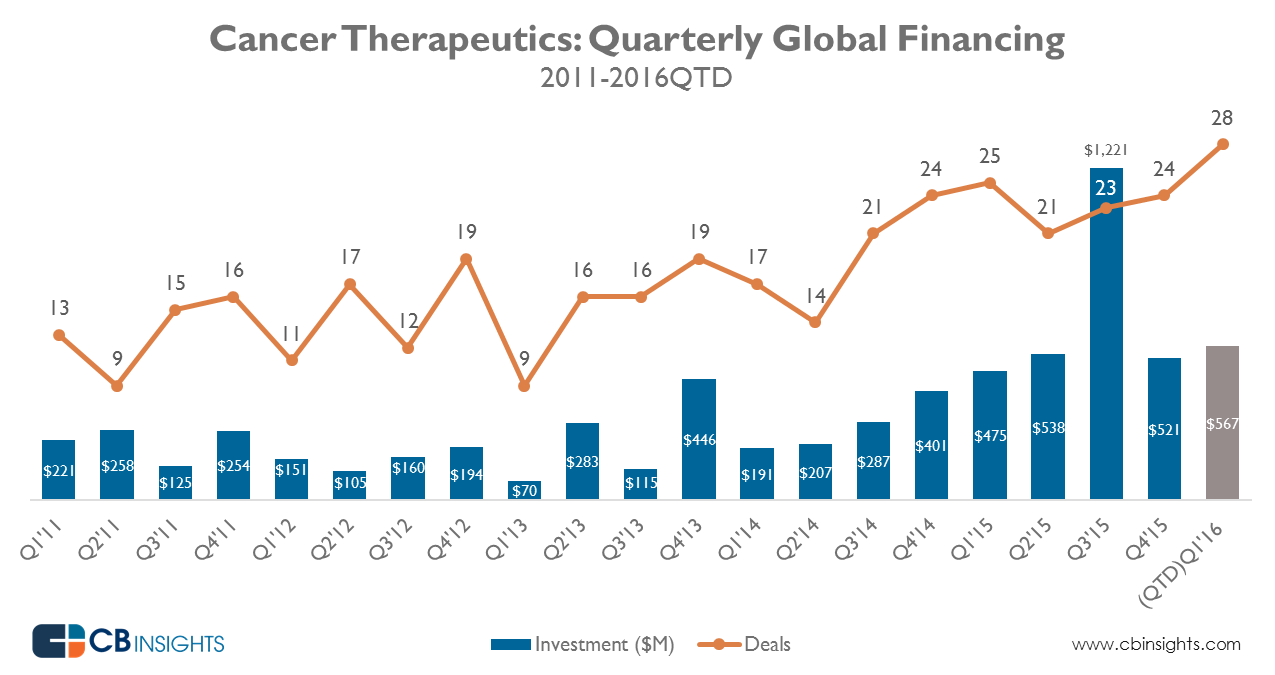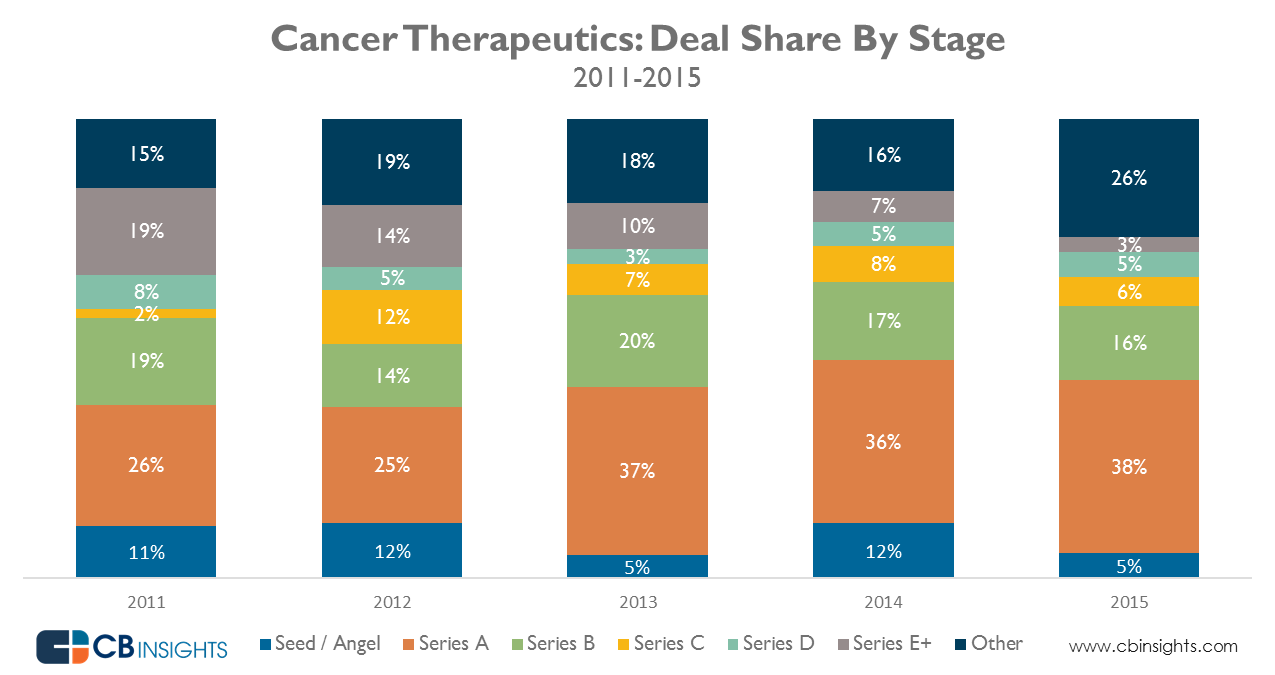Roche Acquires Ignyta for US$1.7 Billion at US$27.00 Per Share
SAN DIEGO – (BUSINESS WIRE) – Roche (SIX: RO, ROG; OTCQX: RHHBY) and Ignyta, Inc. (NASDAQ: RXDX) today announced they have entered into a definitive merger agreement for Roche to fully acquire Ignyta at a price of US$ 27.00 per share in an all-cash transaction. This corresponds to a total transaction value of US$ 1.7 billion on a fully diluted basis. This price represents a premium of 74% to Ignyta’s closing price on 21 December 2017 and a premium of 71% and 89% to Ignyta’s 30-day and 90-day volume weighted average share price on 21 December 2017, respectively. The merger agreement has been unanimously approved by the boards of Ignyta and Roche.
Under the terms of the merger agreement, Roche will promptly commence a tender offer, to acquire all outstanding shares of Ignyta common stock, and Ignyta will file a recommendation statement containing the unanimous recommendation of the Ignyta board that Ignyta’s shareholders tender their shares to Roche.
Ignyta, based in San Diego, California, is focused on precision medicine in oncology aiming to test, identify, and treat patients with cancers harbouring specific rare mutations.
Ignyta’s lead molecule entrectinib is an orally bioavailable, CNS-active tyrosine kinase inhibitor being developed for tumours that harbor ROS1 or NTRK fusions. An ongoing pivotal phase 2 clinical trial will support, if successful, dual NDA submissions. Entrectinib targets tumours with one of two genetically defined gene rearrangements: ROS1 fusions in non-small cell lung cancer (NSCLC), and NTRK fusions across a broad range of solid tumours.
In the recently announced interim data including patients from the STARTRK-2 trial, in patients with ROS1 fusion-positive advanced NSCLC, entrectinib demonstrated a 78 percent (25 out of 32; by Investigator) and 69 percent (22 out of 32; by blinded independent central review, BICR) confirmed objective response rate (ORR). Entrectinib also showed a median duration of response of 28.6 months and median progression free survival of 29.6 months in this population, with 53 percent of patients remaining on study. Moreover, entrectinib showed 83 percent (5 out of 6 by BICR) confirmed intracranial ORR in patients with measurable brain metastases. Safety was consistent with previous studies of entrectinib. With over 200 patients treated at the recommended phase 2 dose, most adverse events (AEs) were Grade 1-2 and reversible, and only 3 percent of patients discontinued from the study due to treatment-related AEs. The program is tracking towards dual NDA submissions in NTRK tumour-agnostic and ROS1 NSCLC, if supported by clinical data, with an anticipated US commercial launch in both indications thereafter.
Commenting on the transaction, Daniel O’Day, CEO Roche Pharmaceuticals, said, “Cancer is a highly complex disease and many patients suffer from mutations which are difficult to detect and treat. The agreement with Ignyta builds on Roche’s strategy of fitting treatments to patients and will allow Roche to broaden and strengthen its oncology portfolio globally.”
Ignyta will continue its operations in San Diego and be responsible for the ongoing pivotal study of entrectinib to ensure this important medicine reaches patients without delay. Commenting on the transaction, Ignyta’s Chairman, CEO, and Co-Founder, Jonathan E. Lim, said, “Ignyta has been singularly focused on developing precisely targeted therapeutics guided by diagnostics for patients with rare cancers. We are excited that Roche, the global leader in both oncology and personalised healthcare, recognises this powerful approach and shares our passion for advancing entrectinib for the benefit of patients.”
Terms of the agreement
Under the terms of the merger agreement, Roche will promptly commence a tender offer to acquire all of the outstanding shares of Ignyta’s common stock at a price of US$ 27.00 per share in cash. The closing of the tender offer will be subject to a majority of Ignyta’s outstanding shares being tendered in the tender offer. In addition, the transaction is subject to the expiration or termination of the waiting period under the Hart-Scott-Rodino Antitrust Improvements Act of 1976 and other customary conditions.
Following completion of the tender offer, Roche will acquire all remaining shares at the same price of US$ 27.00 per share through a second step merger. The closing of the transaction is expected to take place in the first half of 2018.
Citi is acting as financial advisor to Roche and Sidley Austin LLP is acting as legal counsel to Roche. BofA Merrill Lynch and J.P. Morgan Securities LLC are acting as financial advisors to Ignyta and Latham & Watkins LLP is acting as legal counsel to Ignyta.
About entrectinib
Entrectinib is an investigational, CNS-active, potent, and selective small molecule tyrosine kinase inhibitor of the NTRK (neurotropic tropomyosin receptor kinase) family of tyrosine kinase receptors (TRKA, TRKB and TRKC) and ROS1 proteins, which is in a Phase 2 clinical study in molecularly defined patient populations for the treatment of solid tumours. Entrectinib has been granted PRIME designation by EMA and Breakthrough Therapy Designation by FDA.
About Ignyta
At Ignyta, we work tirelessly on behalf of patients with cancer to offer potentially life-saving, precisely targeted therapeutics (Rx) guided by diagnostic (Dx) tests. Our integrated Rx/Dx strategy allows us to enter uncharted territory, illuminating the molecular and immunological drivers of cancer and quickly advancing treatments to address them. This approach embraces even those patients with rare cancers, who have the highest unmet need and who may otherwise not have access to effective treatment options. With our pipeline of potentially first-in-class or best-in-class precision medicines, we are pursuing the ultimate goal of not just shrinking tumors, but eradicating cancer relapse and recurrence in precisely defined patient populations.
About Roche
Roche is a global pioneer in pharmaceuticals and diagnostics focused on advancing science to improve people’s lives. The combined strengths of pharmaceuticals and diagnostics under one roof have made Roche the leader in personalised healthcare – a strategy that aims to fit the right treatment to each patient in the best way possible.
Roche is the world’s largest biotech company, with truly differentiated medicines in oncology, immunology, infectious diseases, ophthalmology and diseases of the central nervous system. Roche is also the world leader in in vitro diagnostics and tissue-based cancer diagnostics, and a frontrunner in diabetes management.
Founded in 1896, Roche continues to search for better ways to prevent, diagnose and treat diseases and make a sustainable contribution to society. The company also aims to improve patient access to medical innovations by working with all relevant stakeholders.
Thirty medicines developed by Roche are included in the World Health Organization Model Lists of Essential Medicines, among them life-saving antibiotics, antimalarials and cancer medicines. Rochehas been recognised as the Group Leader in sustainability within the Pharmaceuticals, Biotechnology & Life Sciences Industry nine years in a row by the Dow Jones Sustainability Indices (DJSI).
The Roche Group, headquartered in Basel, Switzerland, is active in over 100 countries and in 2016 employed more than 94,000 people worldwide. In 2016, Roche invested CHF 9.9 billion in R&D and posted sales of CHF 50.6 billion. Genentech, in the United States, is a wholly owned member of the Roche Group. Roche is the majority shareholder in Chugai Pharmaceutical, Japan. For more information, please visit www.roche.com.
IMPORTANT ADDITIONAL INFORMATION AND WHERE TO FIND IT
THE TENDER OFFER FOR THE OUTSTANDING COMMON STOCK OF IGNYTA HAS NOT BEEN COMMENCED. THIS ANNOUNCEMENT IS FOR INFORMATIONAL PURPOSES ONLY AND DOES NOT CONSTITUTE AN OFFER TO PURCHASE OR A SOLICITATION OF AN OFFER TO SELL IGNYTA COMMON STOCK. THE SOLICITATION AND OFFER TO BUY IGNYTA COMMON STOCK WILL ONLY BE MADE PURSUANT TO AN OFFER TO PURCHASE AND RELATED MATERIALS. AT THE TIME THE OFFER IS COMMENCED, ROCHE AND ITS ACQUISITION SUBSIDIARY, WILL FILE A TENDER OFFER STATEMENT ON SCHEDULE TO WITH THE SEC AND THEREAFTER, IGNYTA WILL FILE A SOLICITATION/RECOMMENDATION STATEMENT ON SCHEDULE 14D-9 WITH RESPECT TO THE OFFER. INVESTORS AND SECURITY HOLDERS ARE URGED TO READ THESE MATERIALS (INCLUDING AN OFFER TO PURCHASE, A RELATED LETTER OF TRANSMITTAL AND CERTAIN OTHER TENDER OFFER DOCUMENTS) CAREFULLY WHEN THEY BECOME AVAILABLE SINCE THEY WILL CONTAIN IMPORTANT INFORMATION, INCLUDING THE TERMS AND CONDITIONS OF THE OFFER. THE OFFER TO PURCHASE, SOLICITATION/RECOMMENDATION STATEMENT AND RELATED MATERIALS WILL BE FILED WITH THE SEC, AND INVESTORS AND SECURITY HOLDERS MAY OBTAIN A FREE COPY OF THESE MATERIALS (WHEN AVAILABLE) AND OTHER DOCUMENTS FILED BY ROCHE AND IGNYTA WITH THE SEC AT THE WEBSITE MAINTAINED BY THE SEC AT WWW.SEC.GOV. INVESTORS AND SECURITY HOLDERS MAY ALSO OBTAIN FREE COPIES OF THE SOLICITATION/RECOMMENDATION STATEMENT AND OTHER DOCUMENTS FILED WITH THE SEC BY IGNYTA AT WWW.IGNYTA.COM
CAUTIONARY STATEMENT REGARDING FORWARD-LOOKING STATEMENTS
THIS ANNOUNCEMENT CONTAINS FORWARD-LOOKING STATEMENTS ABOUT IGNYTA AS THAT TERM IS DEFINED IN SECTION 27A OF THE SECURITIES ACT OF 1933 AND SECTION 21E OF THE SECURITIES EXCHANGE ACT OF 1934. SOME OF THE STATEMENTS CONTAINED IN THIS ANNOUNCEMENT ARE FORWARD-LOOKING STATEMENTS, INCLUDING STATEMENTS REGARDING, AMONG OTHER THINGS, THE CLINICAL AND/OR NON-CLINICAL DATA OR PLANS UNDERLYING IGNYTA’S ENTRECTINIB PROGRAM, REFERENCES TO THE DEVELOPMENT OF, AND POTENTIAL TIMING OF REGULATORY SUBMISSIONS AND COMMERCIALIZATION FOR ENTRECTINIB, AND THE EXPECTED CONSUMMATION OF THE TRANSACTION, ALL OF WHICH INVOLVE A NUMBER OF RISKS AND UNCERTAINTIES, INCLUDING, THE SATISFACTION OF CLOSING CONDITIONS FOR THE TRANSACTION, SUCH AS REGULATORY APPROVAL, THE TENDER OF A MAJORITY OF THE OUTSTANDING SHARES OF COMMON STOCK OF IGNYTA, THE POSSIBILITY THAT THE TRANSACTION WILL NOT BE COMPLETED, AND OTHER RISKS AND UNCERTAINTIES DISCUSSED IN IGNYTA’S PUBLIC FILINGS WITH THE UNITED STATES SECURITIES AND EXCHANGE COMMISSION (THE “SEC”), INCLUDING THE “RISK FACTORS” SECTIONS OF IGNYTA’S ANNUAL REPORT ON FORM 10-K FOR THE YEAR ENDED DECEMBER 31, 2016 AND SUBSEQUENT QUARTERLY REPORTS ON FORM 10-Q, AS WELL AS THE TENDER OFFER DOCUMENTS TO BE FILED BY ROCHE AND ITS ACQUISITION SUBSIDIARY AND THE SOLICITATION/RECOMMENDATION TO BE FILED BY IGNYTA. THESE STATEMENTS ARE BASED ON CURRENT EXPECTATIONS, ASSUMPTIONS, ESTIMATES AND PROJECTIONS, AND INVOLVE KNOWN AND UNKNOWN RISKS, UNCERTAINTIES AND OTHER FACTORS THAT MAY CAUSE RESULTS, LEVELS OF ACTIVITY, PERFORMANCE OR ACHIEVEMENTS TO BE MATERIALLY DIFFERENT FROM ANY FUTURE STATEMENTS. IF UNDERLYING ASSUMPTIONS PROVE INACCURATE OR UNKNOWN RISKS OR UNCERTAINTIES MATERIALIZE, ACTUAL RESULTS AND THE TIMING OF EVENTS MAY DIFFER MATERIALLY FROM THE RESULTS AND/OR TIMING DISCUSSED IN THE FORWARD-LOOKING STATEMENTS, AND YOU SHOULD NOT PLACE UNDUE RELIANCE ON THESE STATEMENTS. ROCHE AND IGNYTA DISCLAIM ANY INTENT OR OBLIGATION TO UPDATE ANY FORWARD-LOOKING STATEMENTS AS A RESULT OF DEVELOPMENTS OCCURRING AFTER THE PERIOD COVERED BY THIS REPORT OR OTHERWISE.



